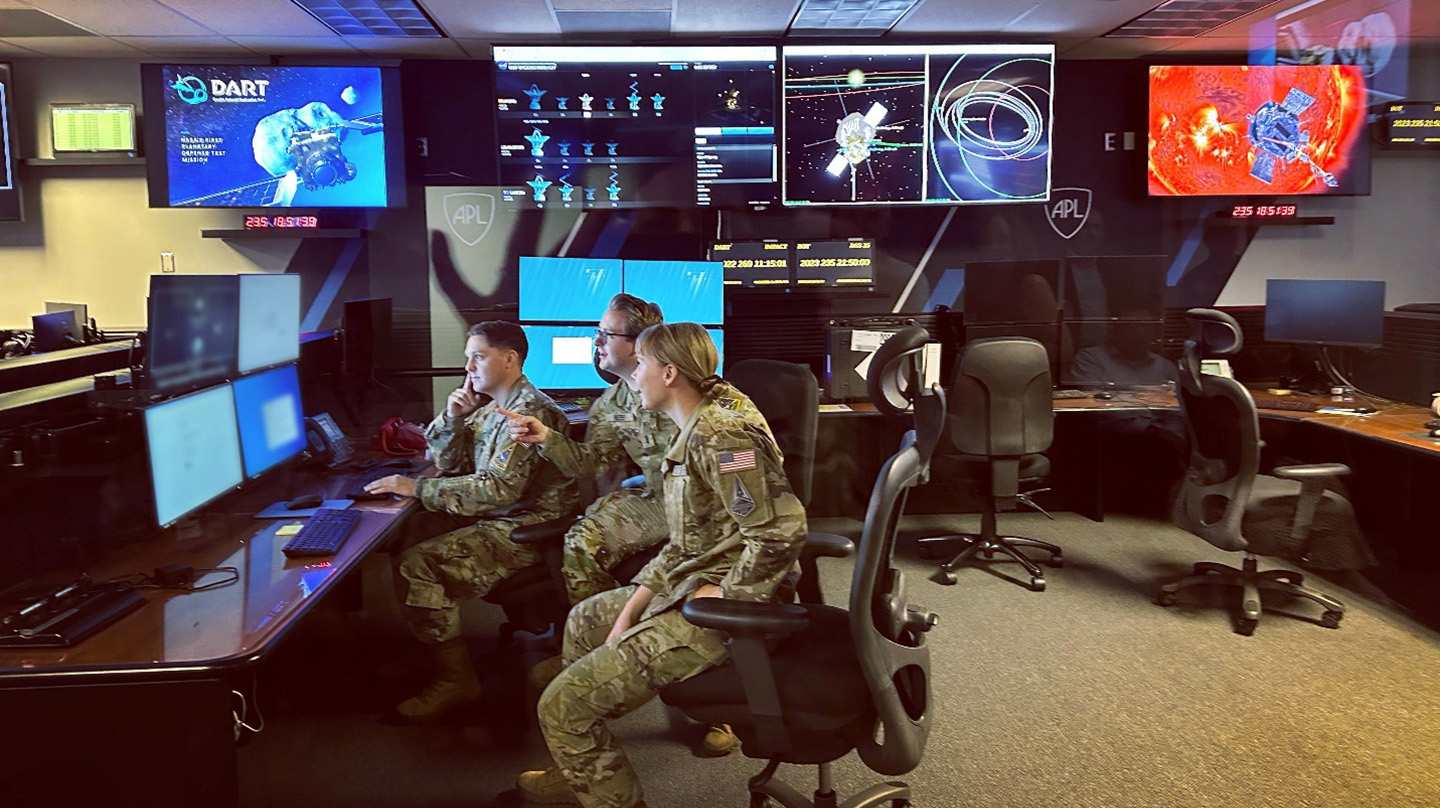Press Release
Johns Hopkins APL Partners With Space Systems Command to Evaluate New Classified Ground Systems Software
The Johns Hopkins Applied Physics Laboratory (APL) in Laurel, Maryland, has forged a new partnership with the Space Systems Command to evaluate classified ground systems being developed for a new network of jam-resistant nuclear command control satellites. This work supports Space Systems Command, the U.S. Space Force’s field command responsible for acquiring and delivering resilient warfighting capabilities from space.
Leveraging its decades of successful space exploration and domain experience, APL will assess software and cybersecurity practices performed in the new ground segment, called GRIFFON (short for Ground Resilient Integration and Framework for Operational Nuclear Command, Control and Communications). The Lab’s participation will ensure GRIFFON is mitigating risks while prototyping and demonstrating its capabilities.
“We are excited to bring APL’s expertise in space operations and software systems to Space Systems Command,” said Michael Kim, a program manager in APL’s Space Exploration Sector. “We truly appreciate another opportunity to support GRIFFON mission partners and ensure that the latest agile software development processes are properly and effectively implemented to meet the warfighter’s mission needs.”
GRIFFON is part of the Command’s new Evolved Strategic SATCOM (ESS) program, an initiative that aims to evolve and modernize the U.S. Department of Defense’s existing ground and space systems and ensure satellite communications are operational for the Nuclear Command, Control and Communications (NC3) mission in the event that nuclear defense becomes necessary.
“This new system is critical to the nation’s NC3 mission,” said Patrick Binning, who leads APL’s National Security Space Mission Area. “APL has deep expertise in this domain, and we’re looking forward to bringing it to bear throughout this partnership with Space Systems Command, and to provide our support in facing the challenges ahead.”
“Partnering with APL allows our program to have a test bed for the ESS framework prototypes and a pseudo-production environment for analyzing agile software drops,” said Lt. Col. Laila Barasha, materiel leader for SSC ESS Ground. “With a focus on cyber-resilient architecture, APL is ensuring that software best practices and lessons learned are baked in to make this system successful faster than predecessor ground systems.”
